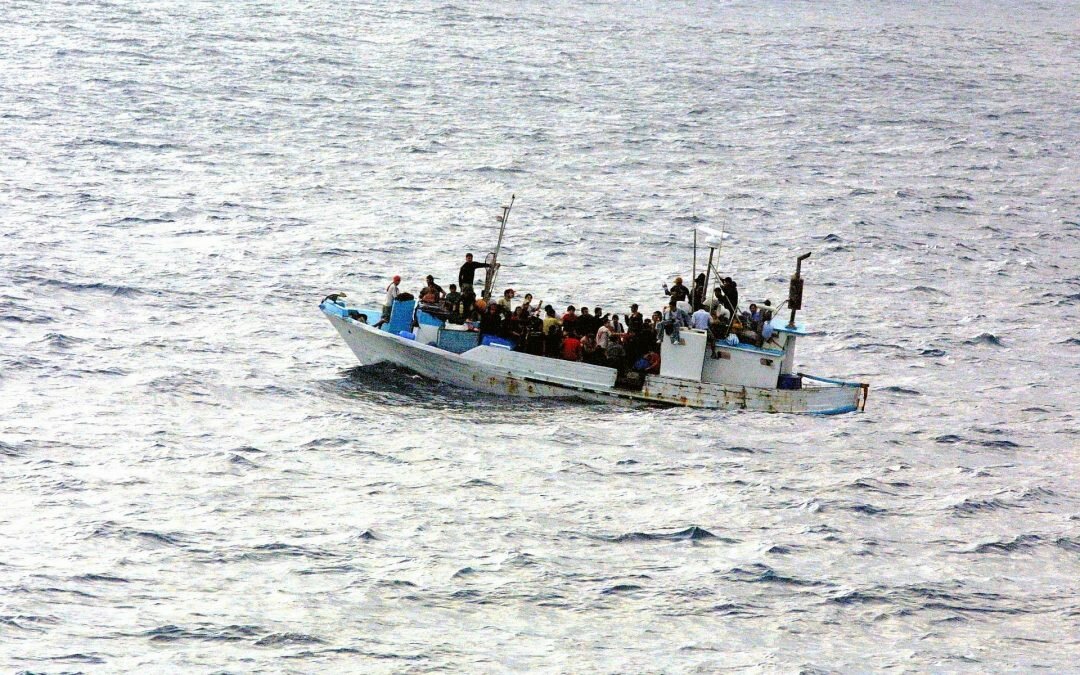He watched his children drown; his wife was eaten alive by sharks.
This is not from the script of some Hollywood horror story. This is the story of how the Lazos, a family of Cuban refugees, met their end in the waters of the Caribbean.
Their only crime was attempting to leave a country that denied them even the most basic human rights. Their escape was foiled after the Cuban coast guard spotted them. They didn’t even get placed on trial for their supposed ‘crimes’ against the state; rather, the small raft they were using to escape was rammed. Only Alberto Lazo survived. His kids drowned after they capsized and his wife was eaten by sharks not long after.
Like many Cubans, Alberto Lazo Pastrana had taken up arms in support of the revolution against the Batista regime. He likely hoped that the new Castro led government would end the cronyism that dominated Havana. Perhaps he believed that democracy, which had been dead in Cuba since the military coup, would return and bring with it a renewed respect for human rights.
He soon realised the beliefs he and his fellow guerillas had fought for were gravely misguided.
Upon coming to power, the Castro brothers carried out a crusade against those who opposed their new communist order. Censorship laws were put in place to guarantee compliance with the ideology of the state. Those who would not, or perhaps could not, comply with the regimes commands were sent to concentration camps. Homophobia, religious bigotry, and theft were all adopted as government policy.
Alberto was disgusted at Castro’s abandonment of human rights. He decided to take a stand despite the risk of punishment. After Alberto served ten years in prison, the Lazos concluded that attempting to escape to the United States was the only way to give their family a future. Sadly, Alberto’s wife and children shared the same fate as 40,000 other Cubans who drowned trying to escape Castro’s ‘utopia’.
There are several clear similarities between the Cuban and Syrian refugee crises. In recent years you have likely seen photographs of families just like the Lazos; families attempting to make the perilous journey to foreign shores. Like the Lazos, those fleeing Syria are seeking freedom from oppression, violence, and cruelty. These refugees also desire the right to live, work, and pray in a country that defends their most basic human rights.
One key difference between these disasters is how our country and continent choose to respond. The reaction to the most recent crisis was surely messy and imperfect. Yet, the sorrow expressed by our academic, cultural, and political leaders is certainly sincere. Many of us students have given time and money to charities in an attempt to relieve the suffering of Syrian refugees. Although our response to the crisis should be criticised, particularly in how it enriched human traffickers, we can take some comfort in the thought that we acknowledged the problem and made some attempts to provide a solution.
The same can’t be said in Cuba’s case.
After Castro’s passing in November last year, our leaders openly mourned the death of the ‘revolutionary’ who imprisoned gay men for having the ‘wrong’ sexual orientation. Dublin City Council honoured a leader, who had stripped his citizens of their most fundamental human rights, with a book of condolences.
So many refugees migrated to the United States that to this day Miami is the second largest Cuban city in the world.
Why do our politicians treat one group of refugees differently to another? Why did we honour a man who created one of the modern world’s first refugee crises? Are refugees like the Lazos less important because their leader is a communist icon? Have we politicised human life? Have we have decided that since Cuban refugees contradict our ideological worldview they are somehow unworthy of our empathy?
Castro believed families like the Lazos did not deserve to live. Like the thousands of other Cubans who were killed attempting to exit the state, their failure to ‘understand’ the revolution removed their right to life. In his eyes, they deserved to drown.
How can we, as a nation, claim to respect human rights but still honour such a man? How is he any different to the monsters that have terrorised the people of Syria?
It is time that we stop excusing the crimes of the Castro regime. Cuba is not a country to emulate. It is a warning to heed.
A special thanks to the Cuba archive, who have worked tirelessly to document stories like that of the Lazos. http://cubaarchive.org/
The opinions expressed in this article are those of the author and do not necessarily reflect the views of the Burkean Journal.

